Jan 2, 2025
The 5 Stages of Grief
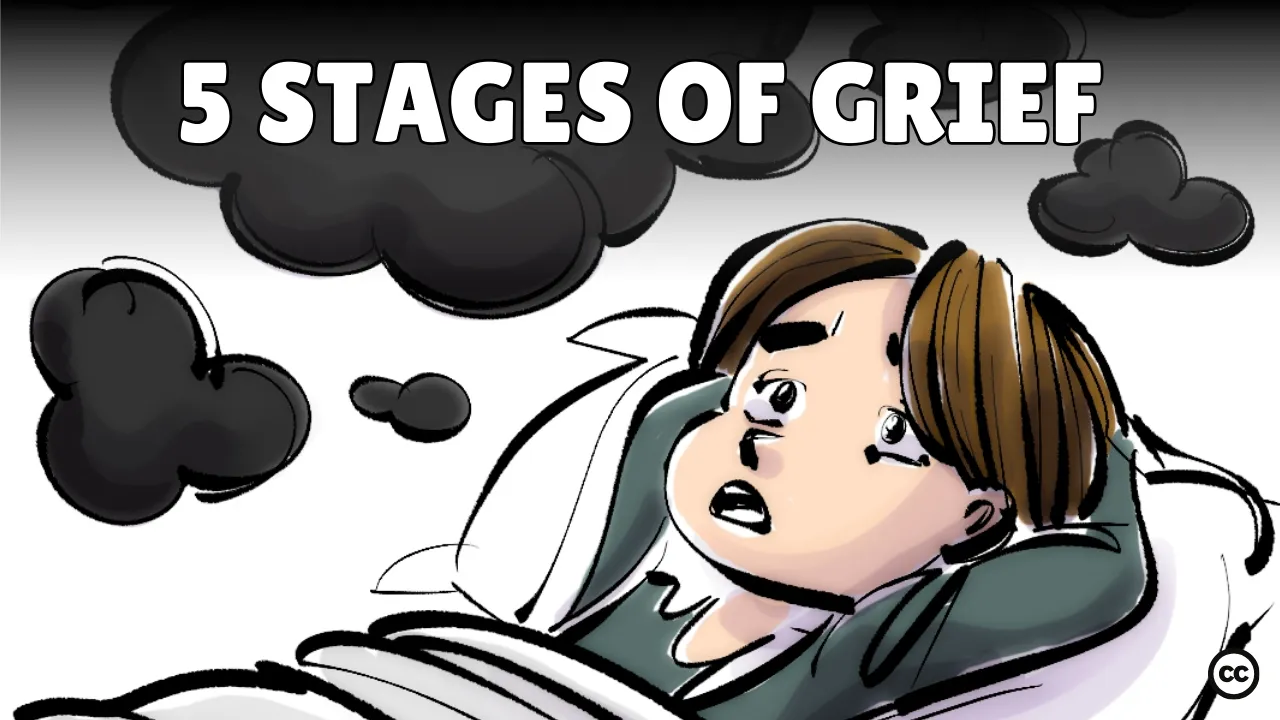
Grief is a profound emotional response to loss, and it can impact our lives in ways we may not fully understand. Understanding the stages of grief can help us navigate our feelings and experiences during these challenging times. In this post, we will explore the five stages of grief: denial, anger, bargaining, depression, and acceptance. Each stage plays a crucial role in our healing process, and recognizing them can empower us to move forward.
The 5 Stages of Grief
The five stages of grief, originally conceptualized by Elisabeth Kübler-Ross, are a framework to help us understand the emotional journey that follows loss. These stages are not necessarily linear; individuals may find themselves cycling through them multiple times or experiencing them in different orders.
1. Denial
Denial is often the first reaction to loss. Initially, we may feel shocked and numb, struggling to accept the reality of what has happened. This refusal to acknowledge the truth serves as a temporary buffer against the overwhelming emotions that accompany grief.
In this stage, denial acts as a protective mechanism, allowing us to take a moment to breathe and process the initial shock. We might find ourselves avoiding conversations about the loss or pretending it didn't happen. This stage gives us the space to gradually confront the reality of our situation.
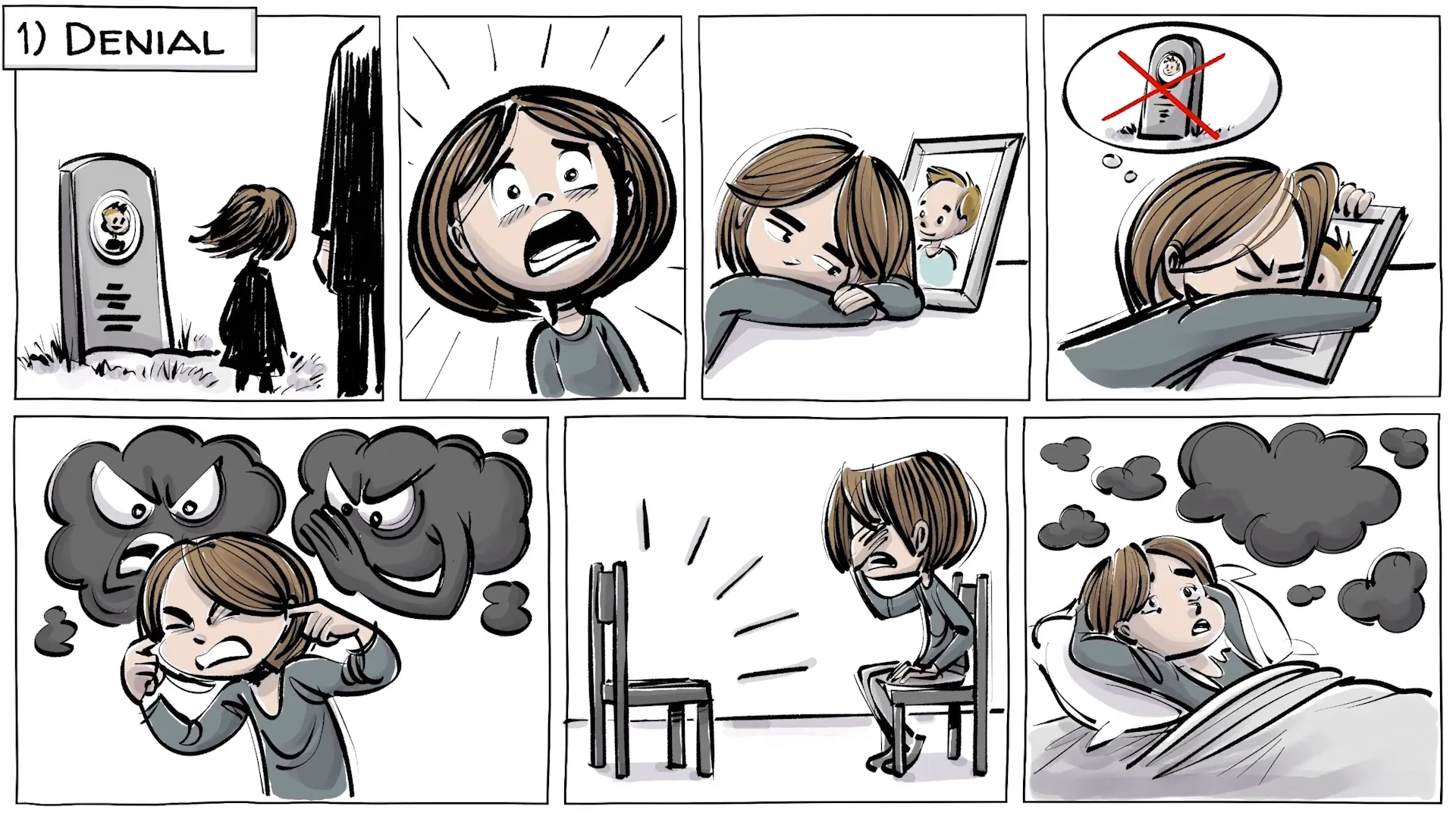
2. Anger
As the reality of the loss begins to sink in, anger often emerges. This can manifest as frustration directed at ourselves, others, or even the situation itself. We may feel a sense of injustice, questioning why this loss occurred and who or what is to blame.
Anger can serve as a shield against the pain of loss, making us feel more in control of our emotions. It's essential to recognize that this anger is a natural part of the grieving process and that expressing it can be healthy. However, it's crucial to channel this anger constructively, rather than allowing it to harm our relationships or lead to further isolation.
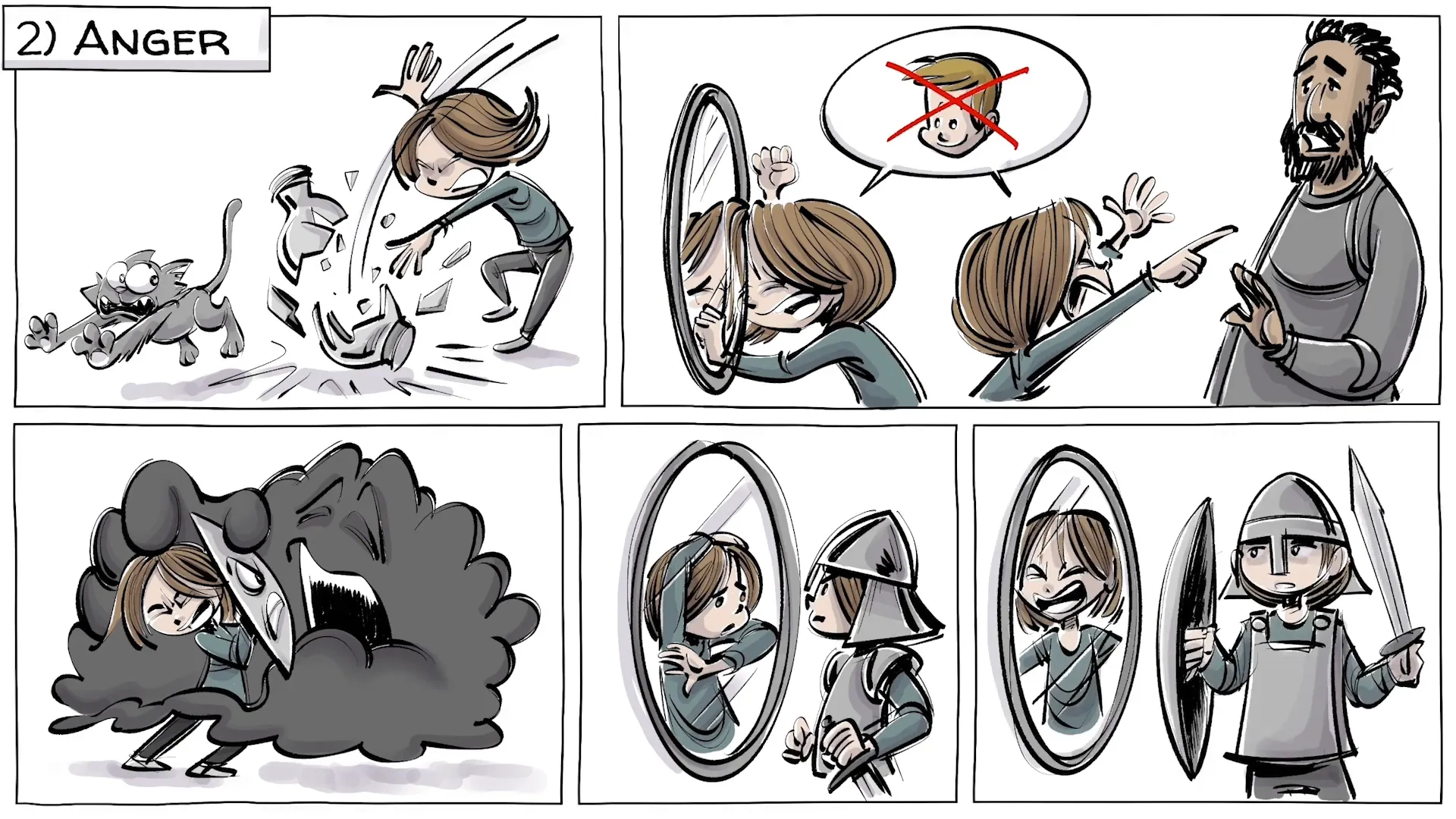
3. Bargaining
The bargaining stage often involves a desperate attempt to regain control over the situation. This might include negotiating with a higher power or ourselves, making promises in exchange for a reversal of the loss. For example, we may think, "If only I had done this differently, maybe they would still be here."
Bargaining reflects our desire to avoid the inevitable and can provide a brief sense of hope. However, it’s important to recognize that bargaining often leads to feelings of guilt, as we replay scenarios in our minds where we believe we could have changed the outcome.
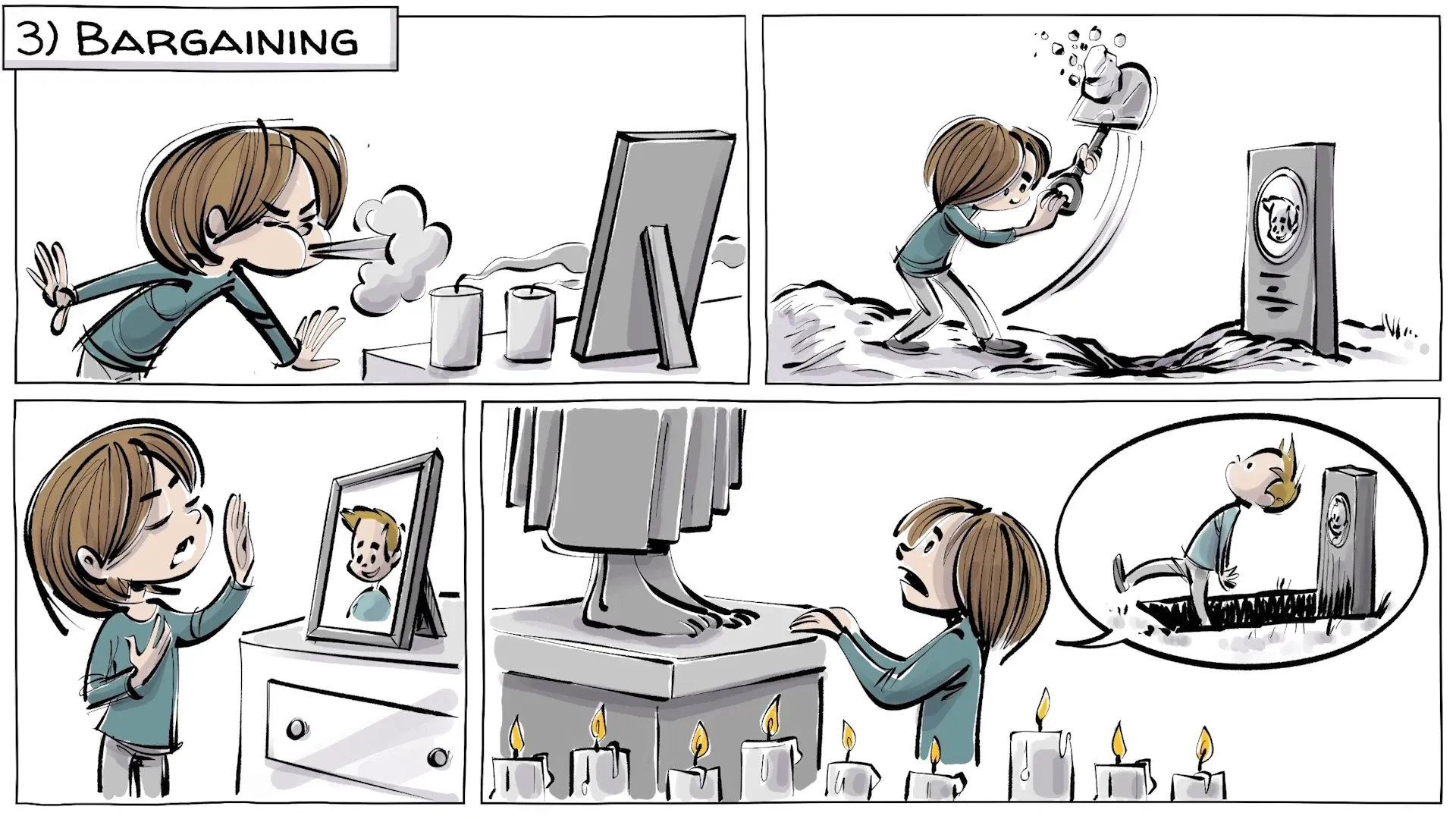
4. Depression
When the weight of the loss truly hits, depression often follows. This stage is characterized by profound sadness, withdrawal from others, and feelings of despair. During this time, we may isolate ourselves and struggle to find joy in activities we once loved.
It's crucial to understand that depression is a normal response to grief. While it may feel overwhelming, it is a necessary part of processing our emotions and beginning to heal. Support from friends, family, or mental health professionals can be invaluable during this stage.
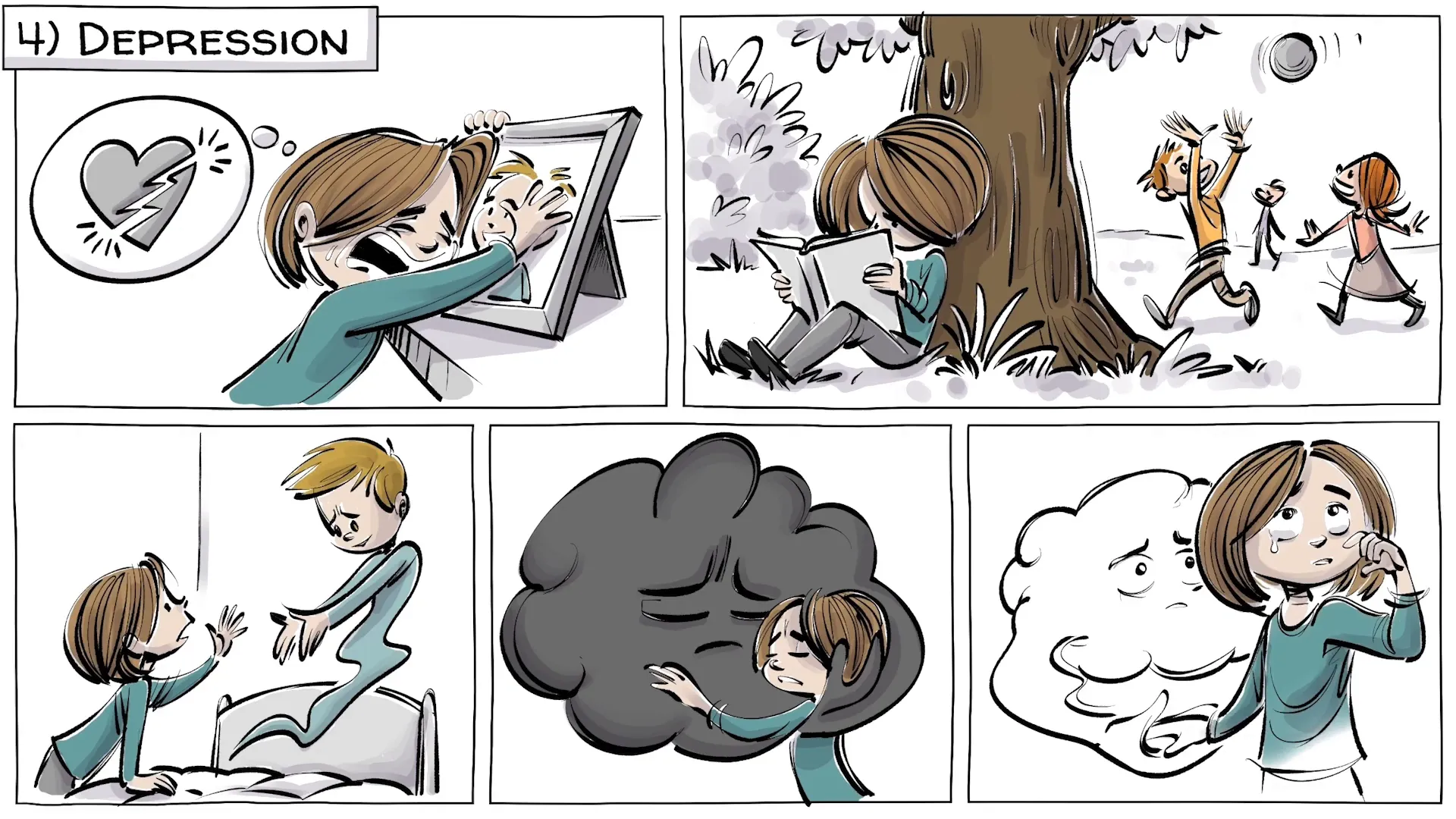
5. Acceptance
The final stage, acceptance, does not imply that we no longer feel the pain of loss. Instead, it means that we have come to terms with what has happened and found a way to integrate the loss into our lives. We may begin to honor the memories of those we have lost while also looking forward to the future.
Acceptance allows us to move forward, acknowledging that life continues even after loss. It can bring a sense of peace, knowing that while the pain remains, we can find ways to cherish the memories of what we have lost.
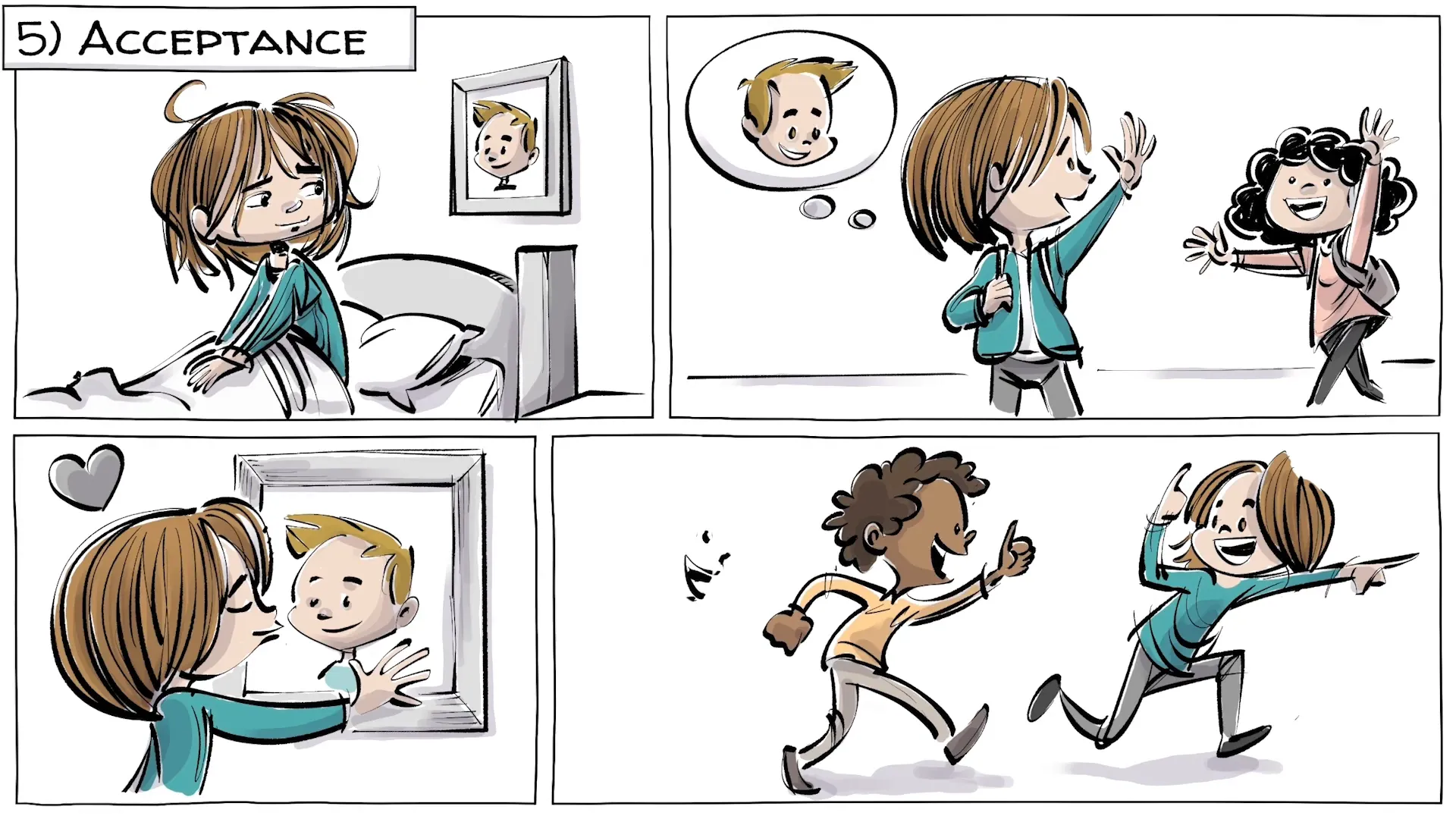
Ongoing Journey of Grief
It's important to recognize that grief is not a linear process. We often cycle back through the stages, revisit emotions, or even experience new feelings that arise unexpectedly. Some days may feel lighter, while others may bring us back to feelings of anger or depression. This ebb and flow is a natural part of the healing journey.
Time can help heal our wounds, but the support we receive from others can make a significant difference in how we navigate our grief. Sharing our experiences and emotions with trusted friends or family can provide comfort and understanding.
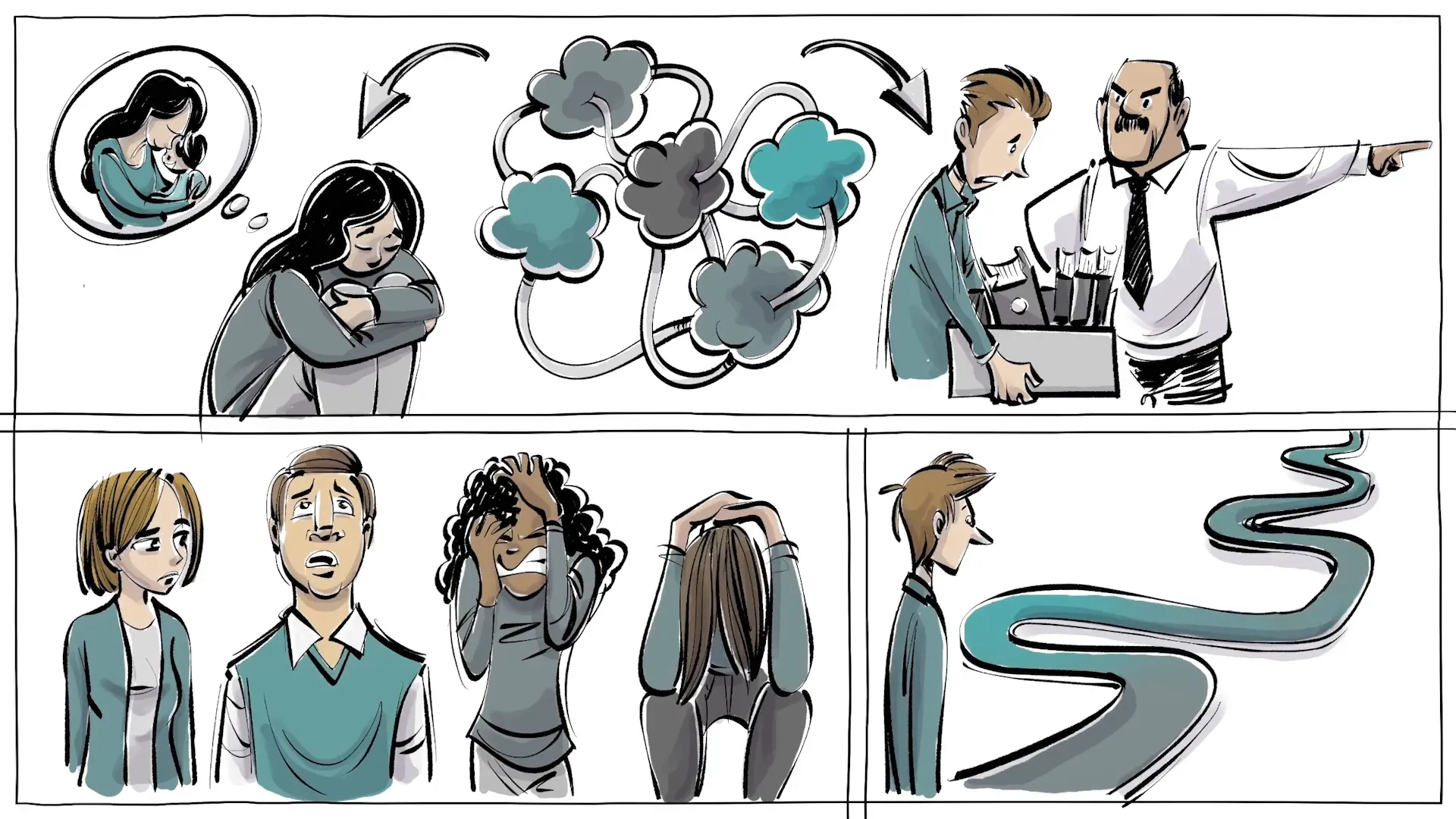
Elisabeth Kübler-Ross
Elisabeth Kübler-Ross was a Swiss-American psychiatrist who dedicated her life to studying the emotions surrounding death and dying. Her observations of terminally ill patients led her to develop the five stages of grief model in the 1960s. Her work has profoundly influenced how we understand grief and mourning.
In her own words, Kübler-Ross stated, "The most beautiful people we have known are those who have known defeat, known suffering, known struggle, known loss, and have found their way out of the depths.” Her insights remind us that while grief is painful, it can also lead to profound personal growth and resilience.
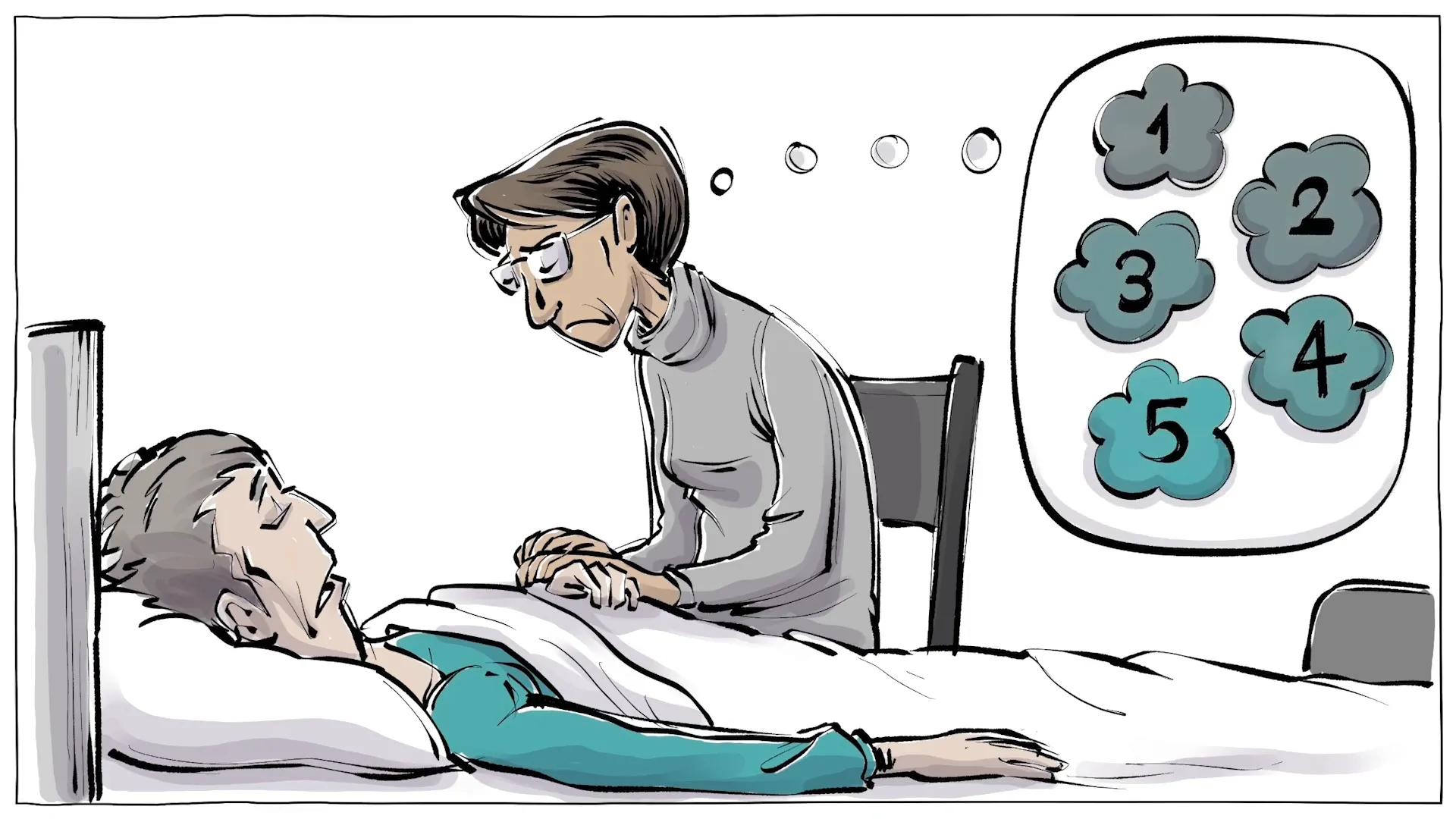
What Do You Think?
Have you ever experienced a significant loss in your life? Did you go through these five stages, or did you find a different path to cope with your grief? Sharing our stories and insights can help others who are navigating their own journeys of loss.
Conclusion
In conclusion, understanding the five stages of grief can provide a helpful framework for navigating the complex emotions that come with loss. Remember, there is no right or wrong way to grieve. Each person's journey is unique, and it's essential to honor your feelings as you move through this process.
This article was created from the video The 5 Stages of Grief with the help of AI. It was reviewed and edited by a human.